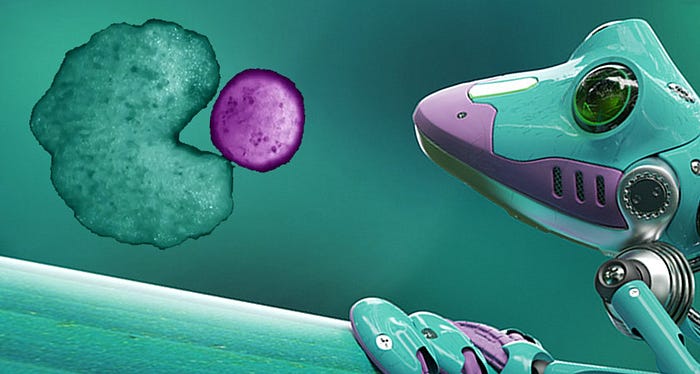While xenobots can exhibit lifelike behavior and carry out rudimentary tasks like pushing objects or swimming, they don’t have the capacity for reproduction. They are composed of living cells but lack reproductive organs or the ability to self-replicate.

The main goal behind xenobot research is to better understand biological processes and explore how living cells can be used to create artificial systems that might help in various fields, such as drug delivery, environmental cleanup, or medical procedures.
Xenobots are a new type of robot that can reproduce, developed by researchers at the University of Vermont and Tufts University. These small, biologically inspired robots are made up of thousands of interconnected cells from the African clawed frog, Xenopus laevis. They are powered by chemical energy and can move, sense their environment, and work together in groups.
The ability for xenobots to reproduce is achieved through a process called "self-replication," where the robots can divide into two smaller robots, each with its own power source and ability to move and sense. This breakthrough in robotics has the potential to revolutionize fields such as medicine, environmental cleanup, and search and rescue operations.
The concept of self-replicating robots, or von Neumann machines, is a theoretical idea that involves machines creating copies of themselves. However, xenobots do not fall under this category as they are not capable of reproduction or self-replication in the same manner as robots in science fiction or theoretical models.
